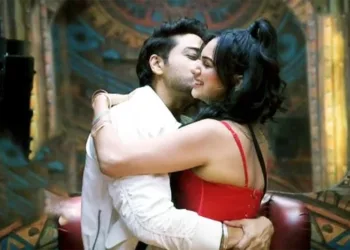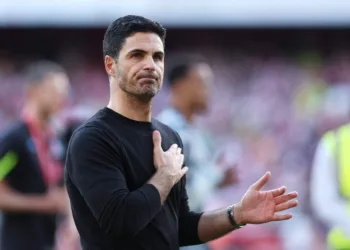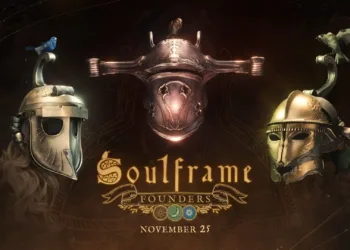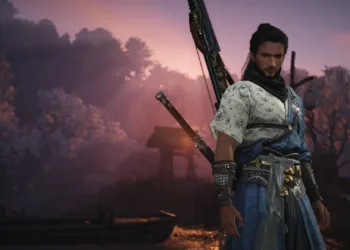Korean cinema is about to deliver its most ambitious supernatural thriller yet. “Run to the West” (중간계) has just unveiled its spine-chilling trailer and apocalyptic poster, promising audiences a mind-bending journey through the realm between life and death.
Table of Contents
“Run to the West” – Essential Film Details
| Aspect | Details |
|---|---|
| Korean Title | 중간계 (Joonggangye) |
| Genre | Supernatural Thriller |
| Director | Kang Yoon Sung (The Outlaws) |
| Lead Stars | Byun Yo Han, Kim Kang Woo |
| Supporting Cast | Bang Hyo Rin, Yang Se Jong, Lee Moo Saeng |
| Release | October 2024 |
| Format | Mid-length Film |
The Concept That’s Breaking Korean Cinema Rules

“Run to the West” follows characters trapped in a realm between the living world and the afterlife, along with the grim reaper who seeks to destroy their souls. The film’s Korean title “Joonggangye” literally translates to the realm between the human world and the divine – a concept that’s both fascinating and terrifying.
This isn’t your typical Korean horror film. Director Kang Yoon Sung, known for hits like “The Outlaws” and “Big Bet,” is exploring uncharted territory by creating a supernatural thriller that questions the very nature of existence and death.
Byun Yo Han’s Career-Defining Performance
Fresh from his critically acclaimed performances in “The Book of Fish” and “Hansan: Rising Dragon,” Byun Yo Han takes on his most challenging role yet as Jang Won. In the trailer, his character ominously declares, “We’re all dead,” setting the tone for this existential nightmare.
Byun Yo Han has been steadily building his reputation as one of Korea’s most versatile actors, and “Run to the West” positions him perfectly for another breakthrough performance. His ability to convey both vulnerability and intensity makes him ideal for a character caught between worlds.
Kim Kang Woo’s Return to Thriller Territory
Kim Kang Woo, who recently impressed audiences in “The Childe,” brings his signature intensity to this supernatural landscape. His collaboration with Byun Yo Han promises to be one of the film’s major highlights, as both actors are known for their commitment to complex, morally ambiguous characters.
The pairing represents a perfect balance – Byun Yo Han’s emotional depth combined with Kim Kang Woo’s commanding screen presence creates the ideal dynamic for a story about souls fighting for survival.

Visual Spectacle Meets Philosophical Depth
The newly released poster highlights the film’s large scale with an image of Seoul landmark Gwanghwamun crumbling. This imagery suggests that “Run to the West” isn’t just a personal journey – it’s an apocalyptic event affecting the entire city.
The trailer opens with a firestorm crashing down from the sky and engulfing Gwanghwamun Square in flame, immediately establishing the film’s ambitious scope. The destruction of such an iconic Seoul landmark symbolizes the complete breakdown between the living and spiritual worlds.
Director Kang Yoon Sung’s Bold Vision
Coming from the success of “The Outlaws” series, director Kang Yoon Sung is taking a massive creative leap with “Run to the West.” The director shared his excitement about trying a new production method and working hard with actors to bring unique entertainment to viewers.
This represents Korean cinema’s continued evolution beyond traditional genre boundaries. By combining supernatural elements with philosophical questions about death and existence, Kang Yoon Sung is creating something entirely new for Korean supernatural films.
The Supporting Cast Excellence
The film boasts an impressive ensemble including Bang Hyo Rin, Yang Se Jong, and Lee Moo Saeng. Each brings their own strengths to this supernatural ensemble, with Yang Se Jong’s recent dramatic work and Lee Moo Saeng’s character acting expertise adding layers to the storytelling.
This casting approach – mixing established stars with rising talent – reflects the film’s ambitious scope and ensures multiple perspectives on the central themes of life, death, and redemption.
October Release Strategy
The October 2024 release positions “Run to the West” perfectly for award season consideration while capitalizing on the Halloween season’s appetite for supernatural content. Korean audiences have shown increasing interest in films that blend traditional concepts with modern filmmaking techniques.
The mid-length format is particularly intriguing, suggesting a focused narrative that doesn’t overstay its welcome while delivering maximum impact. This approach has worked well for recent Korean films that prioritize intensity over runtime.
What Sets It Apart from Other Korean Thrillers
“Run to the West” distinguishes itself by focusing on metaphysical concepts rather than traditional horror scares. The “realm between worlds” concept offers unique storytelling opportunities that haven’t been fully explored in Korean cinema.
The film’s approach to visualizing this liminal space – as evidenced by the apocalyptic imagery in the trailer – suggests a production that’s not afraid to embrace spectacle while maintaining emotional authenticity.
Industry Impact and Expectations
With Korean cinema gaining global recognition, “Run to the West” represents the industry’s confidence in original, culturally-specific storytelling. The film’s success could pave the way for more supernatural thrillers that explore Korean spiritual concepts.
The collaboration between established stars and a proven director suggests industry confidence in both the material and the execution, making this one of October’s most anticipated releases.
FAQs
Q: What does “Joonggangye” mean and why is it significant?
A: “Joonggangye” (중간계) refers to the realm between the human world and the divine in Korean spiritual beliefs. This concept allows the film to explore themes of death, redemption, and spiritual transition in a uniquely Korean cultural context.
Q: Is “Run to the West” connected to director Kang Yoon Sung’s previous action films?
A: No, “Run to the West” represents a complete departure from Kang Yoon Sung’s crime action films like “The Outlaws.” This supernatural thriller showcases his versatility as a director and explores entirely different themes of existence and mortality.








